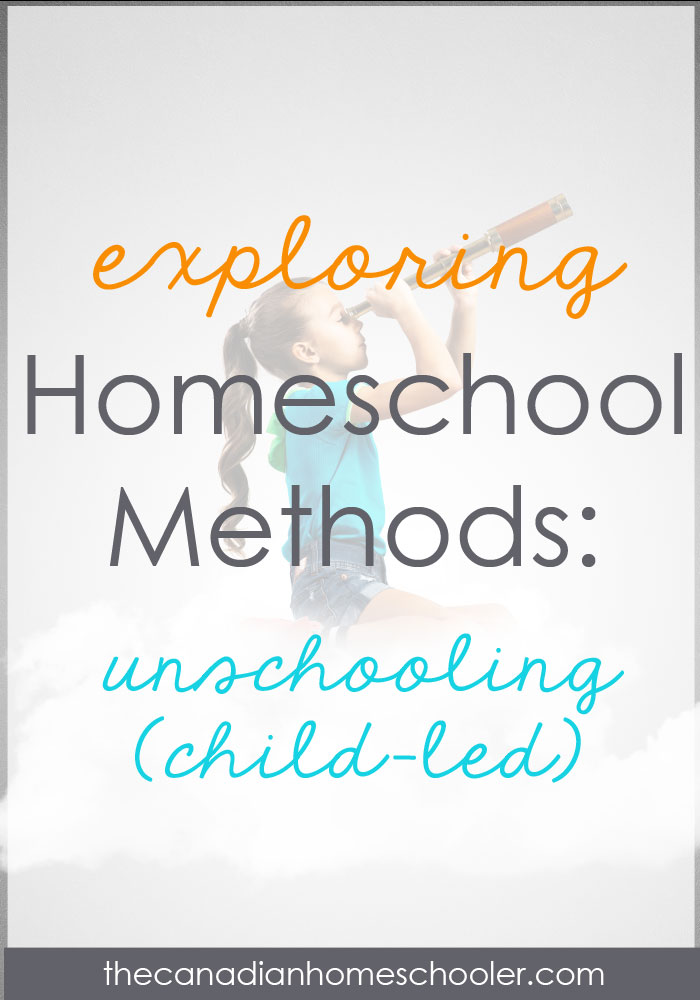Unschooling is a child-led homeschooling method that allows children to learn through life and curiosity. It’s about finding answers and experiences to the questions they have at the moment, and discovering all they can learn about just from their everyday passions. It’s about providing an atmosphere of exploration and inspiration.

Based on the ideals of a man named John Holt, the unschooling movement began officially in the 1970s. The goal of unschooling is to learn through life, such as moments experienced with interactions with others, the environment, their community, personal interests, their household, and volunteer opportunities. Unschooling is completely child-centric, meaning that the learning experience is guided by the interests and curiosities at that moment.
Parents who unschool are more facilitators than typical teachers. They are actively involved in their children’s learning – providing opportunities for them to explore, question, and discover naturally. They participate in their kids’ interests and help them research answers to their questions.
Since the learning is guided by the child, unschoolers typically don’t follow a curriculum or use workbooks, but pull from a plethora of resources to find answers and dive into learning more. One of my favourite examples of how learning happens naturally was by Pam Larrichia from Living Joyfully who drew a web of all the different things that her son learned from video games – it was a very full page!
Unschooling Benefits
- It’s very relaxed and peaceful methodology.
- Since it’s based on a child’s natural interests, they are more likely to retain what they have learned.
- Kids discover that learning happens everywhere, not just from books.
- It allows for mastery of personal interests.
- It is very family-centric, allowing for quality relationships with your children.
Unschooling Disadvantages
- It is completely opposite of social norms which can be stressful.
- It can be hard to get past your own schooling experiences and allow complete freedom.
- It can be time intensive as a parent to be involved, especially with multiple children.
- There can be gaps in what is considered “traditional learning expectations” – if that matters.
- It can be harder to meet homeschool regulations with a complete unschooling approach in some provinces.
 Recommended Resources
Recommended Resources
Unschooling Blogs

Wondering about other homeschooling methods? Follow along in this 10-day series.
- How to Keep a Toddler Busy While Homeschooling - March 21, 2024
- 25+ Things Your Kids Learn From Video Games - March 20, 2024
- 10 Words For New Homeschoolers - March 20, 2024

